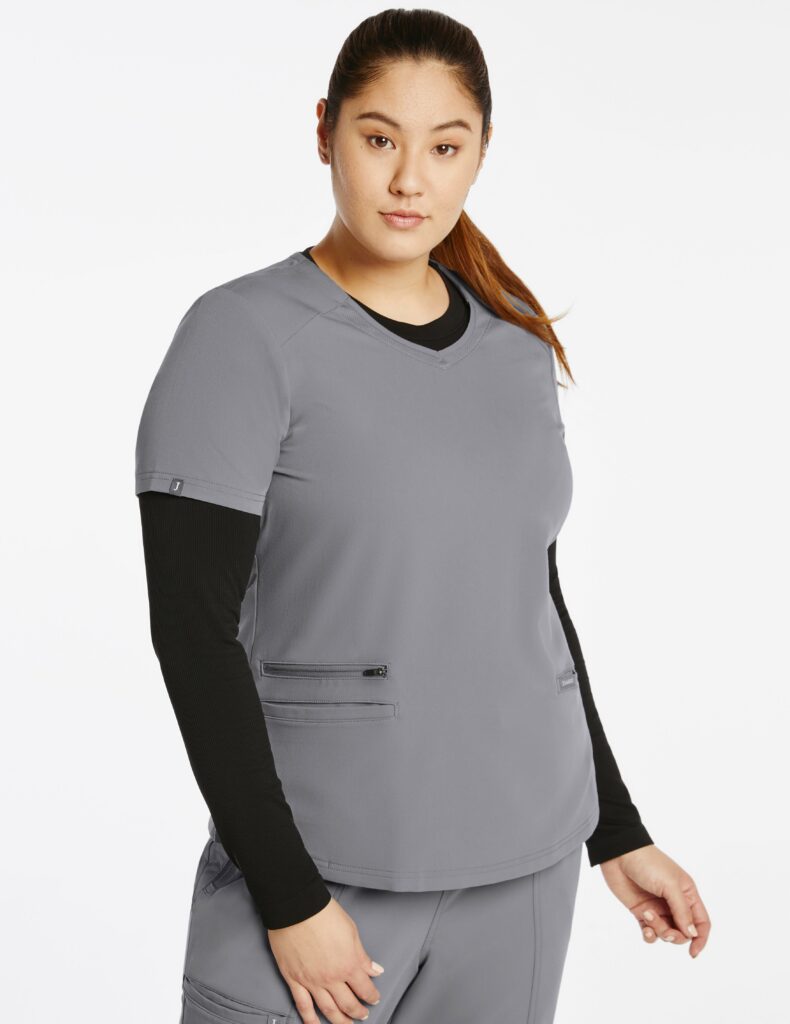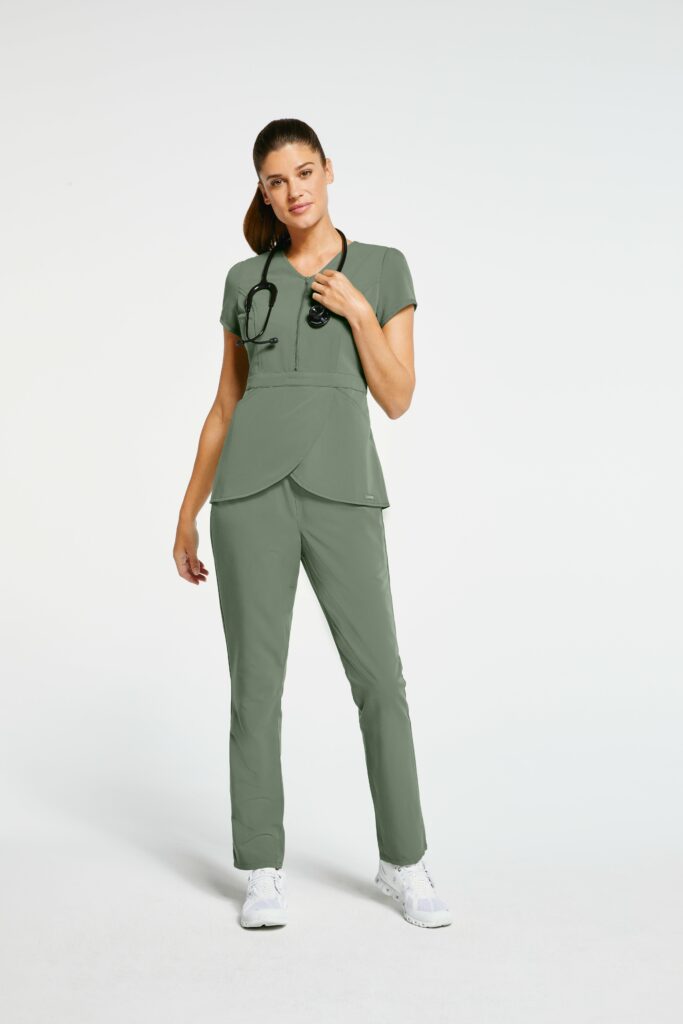
Set Yourself Up for Success: Here’s What You Need for Nursing School
Did you always dream of becoming a nurse when you saw other nurses taking excellent care of you and others when you visited a hospital? Bravo! You’re about to embark on a career that’ll positively impact the lives of many patients.
But first, buckle up because it’s time to return to school. While we agree that nursing school is a challenging ride, it’ll prepare you for taking the best possible care of your future patients. Although your studies won’t be easy, you can set yourself up for success by fully understanding what your experience will entail.
Let’s learn how to choose the right nursing program and make a nursing school starter kit to ensure you’re ready for the first day of classes. When we say “buckle up,” we don’t just mean it metaphorically. Prepare to strap on a big backpack because you’re about to accumulate a lot of new books and tools.
Define your career path
The first step of applying to nursing school is figuring out which degree is right for you. Only then can you research the prerequisites the institutions of your dreams ask for on their applications. As with many college-level programs, nursing schools ask for standardized test scores and letters of recommendation, but the exact requirements depend on the program. Here’s how you can get started and make a plan for applying to school.

Find the right program for you
Decide what type of nurse you’d like to be. Don’t worry, you don’t have to stick with this decision for the rest of your life. Plus, you’re still very early on in your educational journey, and you can shift your focus later as needed.
First, try to determine what type of degree you’d need for the nursing career of your dreams. For example, if you plan to become a registered nurse (RN) and later specialize, you’ll likely need a bachelor’s degree. Or, if you plan to hold an advanced nursing degree or teach, you’ll probably need a master’s or a doctoral-level degree. Be sure to research the high school requirements for nursing school, as many programs require certain coursework and grades.
Choose a degree
- Certified nursing assistant (CNA): This training program will prepare you for becoming a nursing assistant but won’t meet the requirements for RN work.
- Licensed practical nurse (LPN): Upon completing this nursing program, you’ll be able to work as a practical nurse but not as an RN.
- Associate Degree in Nursing (ADN): This degree will earn you the title of an RN, but if you plan to specialize later, this degree may not fulfill the base requirements and you’ll have to go back to school to get your bachelor’s.
- Bachelor of Science in Nursing (BSN): A BSN is an excellent degree to jumpstart your career as this will serve as a base. You can easily pursue specialization training and postgraduate degree programs when you’re ready to advance your studies.
- Master of Science in Nursing (MSN): This is a master’s degree or a postgraduate degree that’ll allow you to work in capacities like nurse educators or clinical nurse leaders.
- Doctor of Nursing (DN): With a terminal degree in the field, you’ll be eligible for various advanced nurse practitioner roles and teaching careers.

Choose the right program and apply
Once you’ve decided on the degree, choose the right program for you. Consider any geographic limitations you may have and your budget, and get to know the schools to which you’re applying by visiting the campuses and reading about the experience of other nursing students. It’s finally time to fill out the application. Here are a few tips to make it stand out:
- Write about the community service or volunteer work you do on your resume or in an essay
- Submit stellar letters of recommendation
- Cite any hands-on medical experience you happen to have
- Mention why you’re particularly invested in applying to this school
So, exactly when do you apply to nurse school? Here’s what you can do: Try to do all your research on programs and application requirements at least a year before you plan to start this phase of your education. This gives you ample time to apply and take any standardized tests your program requires.
What supplies will I need? A nursing equipment list
No matter what path you choose, you’re going to study—a lot. Start off on the right foot by gathering all the supplies you need. This ensures you’re ready to hit the books (efficiently) on day one. So, what do you need for nursing school? Here are a few essentials:
- Planner: Time management is key in nursing school. You’ve to balance studying, classes and perhaps a part-time job. Plus, aspiring RNs have to prepare for the National Council Licensure Examination (NCLEX), and slow-and-steady studying wins the race. A planner will help you get—and stay—organized.
- Note-taking supplies: Stock up on pens, highlighters, sticky notes and notepads. Also, consider getting a voice recorder so that you can listen back to lectures later and supplement your notes.
- Laptop/iPad and wireless mouse: Although writing your notes can help you better retain information, tech also has its benefits. You can download study guides and applications to test your knowledge before exams.
- Headphones: Block out all those distractions in the library or coffee shop where you study with a pair of noise-canceling headphones.
- Roller backpack: Nursing books are heavy, and you’ll carry a lot of them around. Sure, you can get a regular backpack, but a rolling one will literally take the weight off your shoulders.
- Water bottle: Always have a water bottle on hand. Studies suggest that an adult must consume 2.7-3.7 liters of H2O every day. It’s essential for proper brain functioning, so don’t get dehydrated.
- Compression great: Once you enter the clinical practice phase, you’ll be on your feet a lot. Consider adding compression socks or scrubs to your nursing school supplies list and lower your back and ankle/foot pain risk.
- Hand sanitizer: Add a little bottle to your supplies kit, and apply it at regular intervals. This will not only help you during nursing school but also when you tend to patients. Avoid cross-contamination altogether!

How much money does a nurse make?
Will nursing school pay off, literally? It should. RNs earn roughly $75,000 per year, although you can stand to earn much more with an advanced degree. In fact, salaries range based on the geographic area where you practice, so you may earn more as an RN in your state.
Nonetheless, you should research scholarships and loans if you’re worried about student debt and consider money an important factor in choosing a nursing program.
Nowadays, nursing is not just associated with administering IVs or assisting doctors. They’re always on their toes to support patients during their recovery. They play a significant role in ensuring everything is under control in healthcare practice. Especially after the pandemic, the profession has evolved; nurses can even work remotely and provide consultations to patients.
At Jaanuu, we’re here to help all healthcare heroes by outfitting you with workwear that allows you to do your job comfortably and confidently. And don’t forget to take advantage of our student discount while you work toward earning your degree. We’ll always be rooting for you!